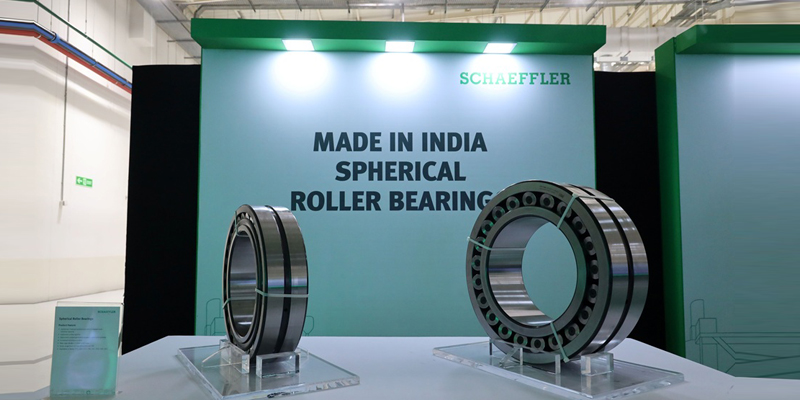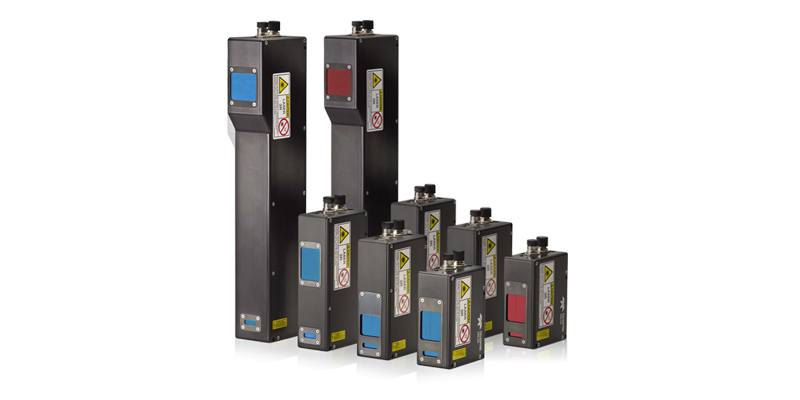Schedule a Call Back
India must focus on creating original technologies: Dr Nagahanumaiah
 Articles
Articles- Sep 03,25

The Central Manufacturing Technology Institute (CMTI), based in Bengaluru, has been a pivotal institution in India’s manufacturing ecosystem for over six decades. Established in 1962, the institute has evolved from primarily serving as a service provider to becoming a recognised originator of technology and innovation. Under the leadership of Dr Nagahanumaiah, Director of CMTI, the institute has taken significant strides in indigenous machine development, research collaborations, training, and support for MSMEs and startups. In this conversation with Rakesh Rao, Dr Nagahanumaiah shares insights into CMTI’s journey, its evolving mandate, collaborations with industry, contributions to emerging technology areas, and his vision for India’s future as a global manufacturing hub.
How has CMTI transformed over the years?
CMTI was originally established in March 1962 as the Central Machine Tool Institute. In the early 1990s, the name was changed to the Central Manufacturing Technology Institute to reflect a broader scope of activities beyond machine tools.
From the very beginning, our core strength has been the design and development of machines that were not previously made in India. We work in two ways:
Technology-driven development: Our scientists and engineers, or government ministries, identify gaps in critical technologies. We design and develop machines or process technologies to address these gaps. The developed technologies are then transferred to industry through licensing rather than mass production at CMTI.
Customer-driven development: We also design and develop special purpose machines (SPMs) when industries, government agencies, or research organisations such as DRDO, ISRO, or BARC approach us with specific requirements. These could be import substitutions or entirely new machines tailored to their needs.
Over the decades, we have designed and developed more than 500 machines, many of which were first-of-their-kind in India. Earlier, our work was largely customer-driven, but in recent years we have placed much greater emphasis on intellectual property (IP), technology marketing, and wider dissemination. Today, we are not only providing services but also building IP portfolios that can serve multiple sectors.
What are the major verticals of activity at CMTI?
Our activities are structured into four major verticals:
Technology Development: We build new machines, process technologies, and automation systems, both for industry and strategic sectors; every year, we design around 8–10 new machines.
Special Purpose Machines (SPMs): These are customised solutions based on specific client needs. Many are for strategic or highly specialised industrial use.
Testing, Inspection, and Calibration (TIC) Services: We run state-of-the-art laboratories providing services to nearly 750 clients annually, mostly MSMEs who cannot afford such facilities. We offer around 2,500–3,000 services each year. MSMEs, startups, and academia receive discounted rates.
Training and Skill Development: While we do not award degrees, we conduct more than 50 structured training programs annually, typically lasting 2–5 days. We also offer customised corporate programs, hosting over 200 student interns at any given time. This is an important way we contribute to building skilled manpower for industry.
How has CMTI evolved from being service-oriented to becoming technology- and IP-driven?
In the past, most of our machines and technologies were developed in response to specific customer requests, so they were not widely known or publicised. However, in the last seven years, we have consciously shifted our focus.
We established a Technology Transfer, Marketing, and Value Addition Cell to ensure that every new technology we develop is protected as intellectual property and can be adapted for broader industry applications.
Between 2016 and 2023, we developed around 68 technologies, including about 42 new machines, more than 90 per cent of which were entirely new to India. This marks a significant transformation in our approach — from one-off solutions to scalable, IP-backed innovations.
Do you also carry out independent research apart from industry requests?
Absolutely. Independent research is a critical part of our mandate. Our scientists continuously study emerging technologies and identify gaps that India needs to fill. Based on this, we develop proposals for government funding or invest our own resources in preliminary work.
Currently, we have about 75 technologies developed and ready for licensing. Even when a customer is not identified at the project’s inception, we ensure that the resulting technology is market-ready and adaptable for multiple industries.
How does CMTI support MSMEs and startups?
As a government-funded R&D institute, supporting MSMEs is one of our core responsibilities. We offer:
- Discounted TIC services and training programs.
- Student internships and academic projects, providing hands-on exposure.
- Co-development opportunities, where MSMEs can partner with us to refine technologies.
- Technology licensing, allowing MSMEs to commercialize our IP under their own brand.
We also participate in government schemes that de-risk R&D for MSMEs. For instance, under the Ministry of Heavy Industries’ Capital Goods Scheme, we are co-developing 16 machines with 13 industry partners. In this model, the industry contributes 20 per cent of the funding, while 80 per cent comes from the government.
What key changes have you observed in India’s manufacturing sector over the last decade?
The most significant shift has been a move towards quality consciousness. Earlier, a ‘jugaad’ approach was common, but now industries recognise that such quick fixes are not sustainable. They are increasingly adopting scientific, technology-driven methods.
Digitization has also democratised access to knowledge and collaboration. Manufacturers now understand the value of cooperation and partnerships, both within India and globally.
Another change is the growth of entrepreneurship and risk-taking. When I was a student, the idea of starting a company was unheard of. Today, startup culture is ingrained, with young engineers encouraged to innovate and establish their own ventures.
Which sectors or technologies are CMTI currently prioritizing?
While we continue to focus on machine tools and automation systems, we are also diversifying into emerging and strategic areas. Some of our key focus areas include:
- Strategic sectors: Supplying specialised machines to ISRO, DRDO, and BARC.
- Aerospace: Developing test rigs for qualifying aerospace components.
- Micro- and Nano-Manufacturing: Precision solutions for high-accuracy components.
- Smart Manufacturing and Sensors: Solutions for digital factories and Industry 4.0.
- Electric Vehicles (EVs): Designing indigenous machinery for lithium-ion battery manufacturing (currently dominated by imported machines).
- Semiconductors: Developing equipment for semiconductor fabrication, a critical gap in India’s ecosystem.
In the coming five years, we plan to indigenise several high-end precision machines still being imported. We have already identified 23 such gaps, and proposals for at least 8 machines are underway.
How does an SME approach CMTI for solutions?
The process is straightforward. SMEs can reach out via our business development team, directly contact relevant scientists, or even write to me. Once we receive the request, we analyse the problem, assess our capabilities, and identify whether it requires customisation, co-development, or technology licensing.
We then formalise the engagement through contracts or government schemes, ensuring that the SME gains not just access to the technology but also support in absorbing and commercializing it.
Looking ahead, what trends will shape Indian manufacturing over the next decade?
India has a unique opportunity to become a global manufacturing hub, especially as companies seek alternatives to China. But for long-term sustainability, we must not rely solely on being a “China Plus One” option. Instead, India must focus on creating original technologies and domestic IP.
I often put it this way:
- “Made for India” was our weakness.
- “Make in India” is a process.
- “Made in India” is a pride.
- But “Originated in India” is what will ensure sustainable growth.
Developing indigenous technologies, protecting IP, and fostering collaboration will be key drivers of India’s future industrial landscape.
A persistent challenge is the shortage of industry-ready engineers. What is your perspective on India’s talent pool?
It is true that only a small percentage of engineering graduates are immediately industry-ready. This is due to a decline in practice-based learning and overreliance on digital or theoretical methods.
Earlier, public sector companies invested heavily in training fresh graduates. With the decline of such programs, industry today expects graduates to be productive from day one, which is unrealistic.
However, I believe today’s graduates are far more intelligent and resourceful than earlier generations. What is missing is hands-on exposure and the willingness of employers to invest in training. Industry must treat training as both an investment and a social responsibility. At CMTI, we contribute by offering student internships, customised training, and corporate programs, ensuring that the next generation of engineers gains practical skills.
Finally, where do you see CMTI in the next five years?
Our vision is to remain a national R&D institute focused on applied research and technology development. In the next five years, we aim to:
- Enhance our role in indigenous technology development for strategic and emerging sectors.
- Build a strong portfolio of patents and licensed technologies.
- Expand our smart manufacturing and digital factory solutions.
- Strengthen support for MSMEs, startups, and academia.
- Contribute to reducing India’s dependence on imported high-end machines.
As a publicly funded institute, our responsibility is to enable the growth of manufacturing technology in India. We are open to collaborations, but we firmly believe that nothing should be free — industries must value technology and invest in it.
3 Blurbs (optional)
Developing indigenous technologies, protecting IP, and fostering collaboration will be key drivers of India’s future industrial landscape.
Digitization has democratised access to knowledge and collaboration. Manufacturers now understand the value of cooperation and partnerships, both within India and globally.
In the coming five years, we plan to indigenise several high-end precision machines still being imported. We have already identified 23 such gaps, and proposals for at least 8 machines are underway.
Related Stories

Coupang expands India tech operations with new Hyderabad office
Coupang launches its Hyderabad office, strengthening India’s role in AI, e-commerce, and global technology innovation while expanding engineering leadership and talent.
Read more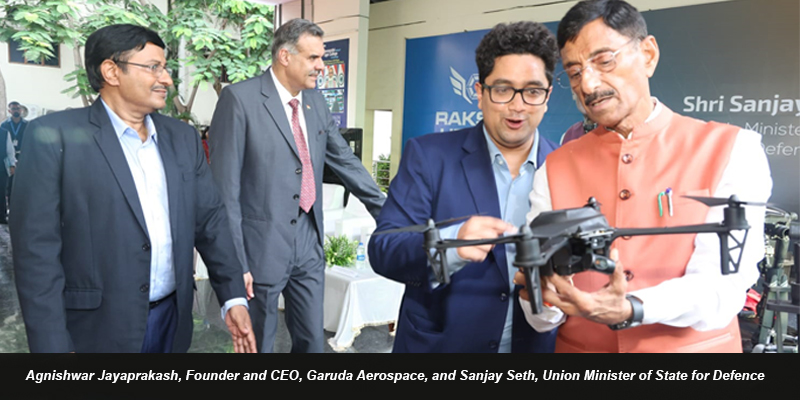
Garuda Aerospace expands defence drone capabilities with new Chennai facility
Garuda Aerospace inaugurated its Defence Drone Facility in Chennai, unveiling advanced UAVs, training initiatives, and a new Defence Park to strengthen India’s defence and social impact efforts
Read more
Industrial Transformation Saudi Arabia: Pioneering the future of Smart Industry
Industrial Transformation Saudi Arabia, to be held from December 1-3, 2025 in Riyadh, is dedicated to showcasing the latest in smart and advanced industrial technologies.
Read moreRelated Products

Bmt Tool Disc and Tool Holders
Prominent Machine Tools offers a wide range of BMT tool disc and tool holders.
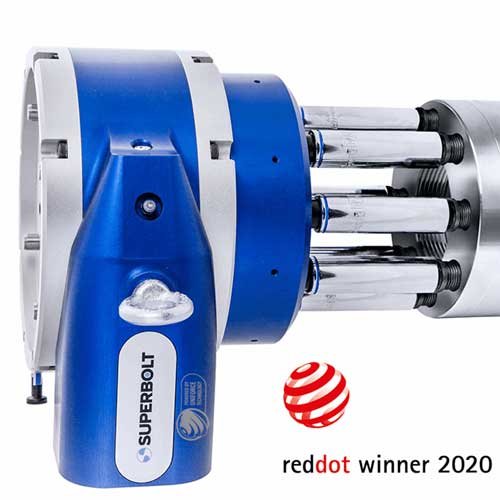
Superbolt Tool
Nord-Lock India Pvt Ltd offers a wide range of Superbolt
tool.
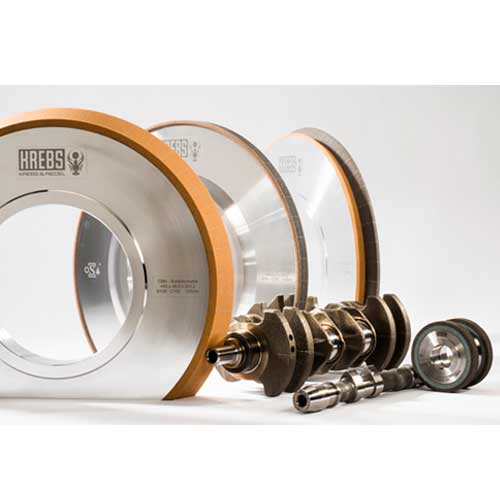
Cbn and Diamond Tools
Krebs & Riedel Abrasives India Pvt Ltd offers a wide
range of CBN and diamond tools.







